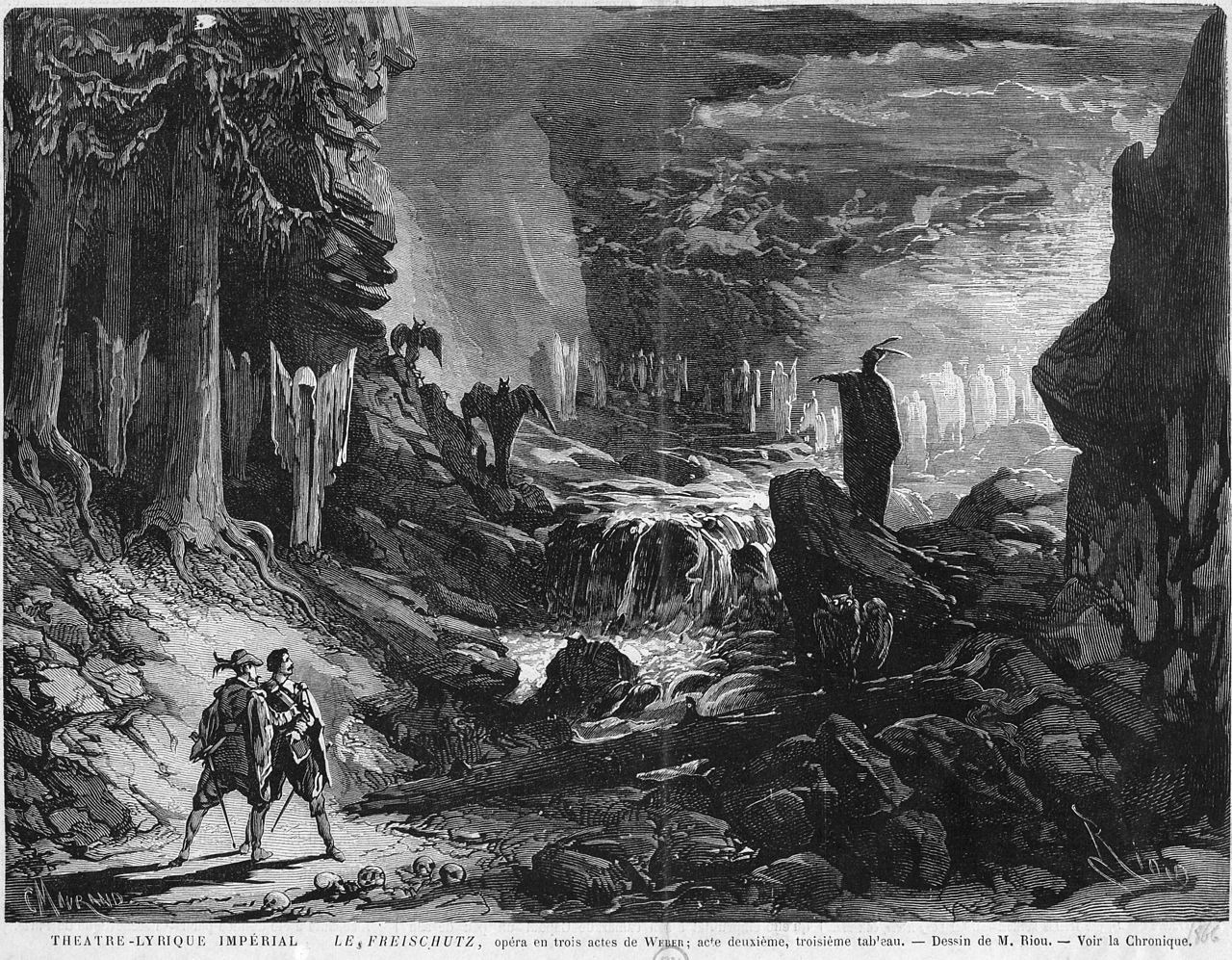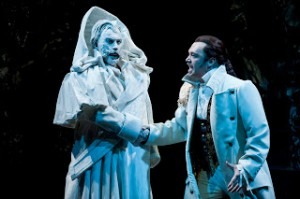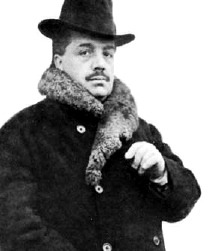
Charles Maurand, Le Freischütz – Wolf’s Glen scene (Act 2, scene 3)
The music for the Wolf’s Glen scene begins with quiet string tremolos and low trombones, an instrument traditionally associated with devilish doings. Ghostly voices sound. Caspar and Max prepare 7 bullets – 3 for Caspar to use, 3 for Max to use, and one extra, which Caspar intends for Agathe. As each bullet is created, new horrors appear: evil birds, a hurricane, a wild hunt, a thunderstorm with meteors and fire, and, for the casting of the last bullet, the devil Samiel appears.
Carl Maria von Weber: Der Freischütz – Act II Finale
Throughout the scene, the violins maintain a skittery presence while the low strings and brass do their part to emphasize the dark dealings happening on stage. Finally, with a roll of timpani, Samiel himself appears, and the last bullet is to be directed by Samiel at Agathe.

WNO Don Giovanni
Beginning with the dramatic opening chords, this scene is set up for the fatal ending. The Commendatore tells Don Giovanni to repent, which he refuses to do, while the background, Don Giovanni’s servant, Leporello, keeps up a frightened commentary. As the end approaches, devilish chanting from below signals the beginning of the end.
Mozart: Giovanni, K. 527: Act II Scene 15: ‘Don Giovanni, a cenar teco’
And at the end, with a frightful scream, Don Giovanni is dragged down to the depths…and so go most opera characters who deal with the devil.


There is a wonderful 1968 film of Der Freischutz on YouTube. It’s in German, but there is a version with English subtitles.
Ernst Kozub’s voice is the voice of Max, the hero.
Gottlob Frick is Kaspar, the rascal who has sold his soul to the devil and now needs to find substitutes to take his place.
I am amazed at how terrific Frick is in this part! He seems to be having tremendous fun with it, and comes to a very sticky end!
I don’t understand how Frick can be such a wonderful actor with so little movie experience. Or how the film could even have been made (there is so much capering about in the Wolfsglen scene).
It is hard to believe that the same man, Gottlob Frick, of the incomparable dark voice could play Kaspar, Hagen, Prince Gremin, King Philip, Gurnemanz and so many other characters to perfection. His Hagens Ruf (as someone said on YouTube) is the most thrilling ten minutes of anything. His King Philip breaks my heart. His Kaspar is so much fun to watch that I have watched it all the way through about ten times.